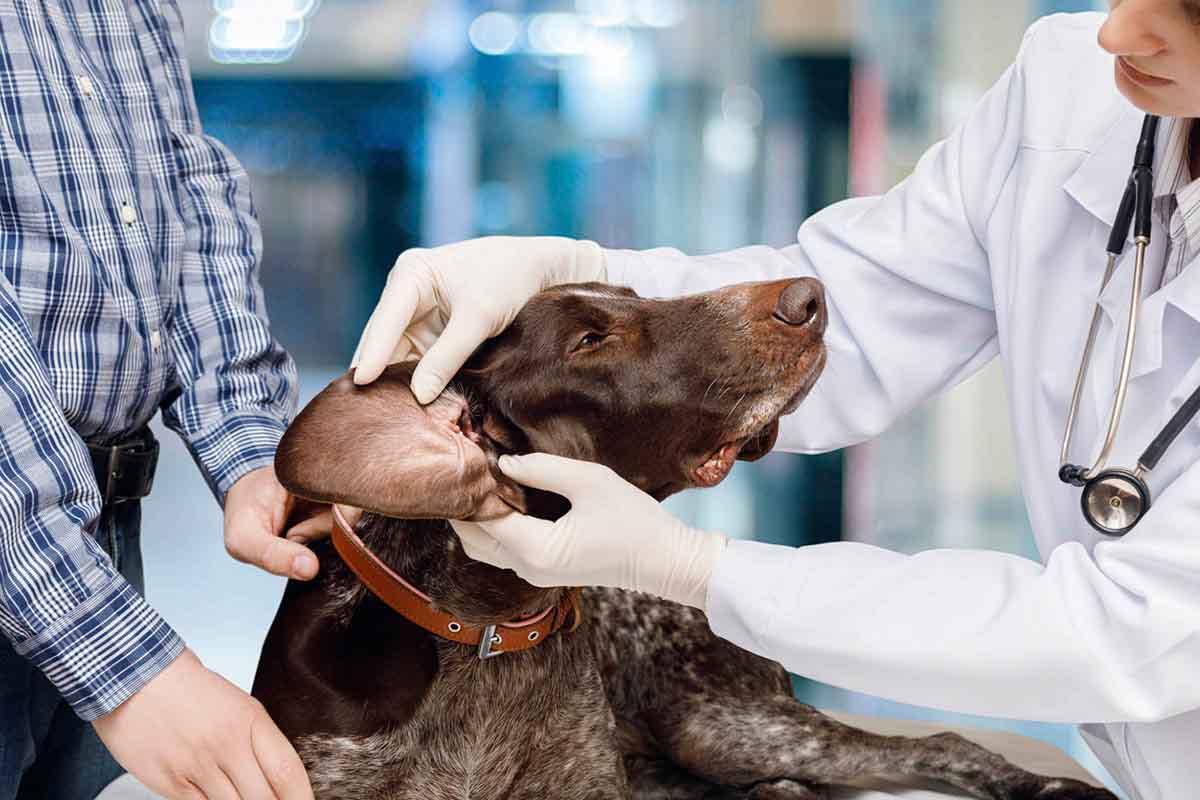America’s Newest Sweetheart: The French Bulldog
In addition to being the most popular dog breed, Frenchies are also the most expensive to insure.
According to the American Kennel Club (AKC), French bulldogs are America’s favorite dogs. Since 2022, Frenchies have beaten Labrador retrievers with the most AKC registrations. The breed’s goofy yet charming personality, wrinkled yet flat face, and small but sturdy body is easy to fall for. But like any breed, French bulldogs have their fair share of health concerns. In addition to winning the title of most popular dog breed, they’re also the most expensive to insure.
Potential Frenchie owners should learn about the breed and its needs before welcoming one into their home. Here, we discuss the Frenchie’s history, health issues to watch out for, and the recent discussion surrounding the ethics of breeding Frenchies and other short-nosed breeds.
The history of French bulldogs
Despite the name, French bulldogs originated in England. Breeders developed a smaller, more portable version of the then-tall and large English bulldog, and the new breed became popular in France. Americans, however, were the ones to develop the Frenchie’s signature bat-like ears.
The French bulldog is solely a companion breed, which means it doesn’t need much exercise. Frenchies get along well with people and other pets, and do well living in small spaces. The dogs became popular with “society” types, fell out of favor during The Great Depression, and then saw a resurgence of popularity in the 1980s.
Why are Frenchies beloved?

French bulldogs are undeniably cute and have personalities to match. They’re excellent with families and kids and don’t have significant exercise or grooming requirements. Several traits contribute to the French bulldog’s popularity, including:
- Small size – Frenchies stand only 11 to 14 inches tall at the shoulder and weigh less than 28 pounds, making them ideal for almost any living situation. Despite their small size, they’re muscular and sturdy, so they can stand up to rough play.
- Playful nature – French bulldogs are playful and loving, bonding strongly with family while maintaining friendliness with strangers. Although some can be strongly opinionated, making silly human-like noises to express their wants and needs, most are quiet and rarely bark.
- Low energy – Frenchies will play and run as long as they’re in a climate-controlled, indoor space. When playtime is over, they’re happy to relax alongside their owners. You may want to look elsewhere if you’re looking for an agility dog or running partner.
- Unique appearance – The French bulldog looks like no other breed. Frenchies sport a signature flat face, stand-up bat ears, and face wrinkles that make these dogs look like they are always smiling.
French bulldog health concerns
The Frenchie’s looks classify them as a brachycephalic breed, which means they have rounded skulls with flattened noses and round, shallow-set eyes. The dogs’ short snouts can cause significant breathing problems. The genes responsible for their unique appearance may be linked to other common health problems.
The science
One study by the Royal Veterinary College in the U.K. found that Frenchies were more likely to suffer from more than 20 conditions compared to other purebred dogs, but they had a lower risk of 11 conditions.
Here’s an overview of the most common abnormalities the researchers observed:
- Brachycephalic obstructive airway syndrome (BOAS) — BOAS is a group of problems affecting nearly all brachycephalic breeds, but the syndrome is often more severe in French bulldogs. Narrow airways and nares (i.e., nostrils) and a long soft palate obstruct breathing, causing the dogs to snore and have minimal tolerance for exercise. Many affected dogs need surgery to help them breathe normally and lower their risk of serious complications like heat stroke or sudden respiratory distress.
- Spine and joint disease — Intervertebral disc disease (IVDD) and hip dysplasia are commonly found in short-legged, long-bodied dogs like the Frenchie. Degenerative spinal changes can cause pain and paralysis in severe cases. Hip dysplasia (i.e., malformed hip joints) and luxating patellas can cause arthritis.
- Skin issues and allergies — The deep skin folds on a French bulldog’s face and narrow ear canals can trap moisture, bacteria, and yeast, leading to skin and ear infections. Skin allergies are also common in the breed, causing dermatitis (i.e., skin inflammation) in response to environmental or food allergens.
- Eye disease — The breed’s large eyes are prone to corneal injuries. Frenchies can also have abnormally placed eyelashes or prolapsed third eyelid glands (i.e., cherry eye) that require surgical repair.
- Obesity — The French bulldog’s relaxed, low-energy nature puts them at risk for obesity, a common condition in all dog breeds that reduces quality of life and can shorten overall lifespan. Obesity can also worsen breathing issues and joint problems and increase the risk of cancer.
How to keep your Frenchie in optimal health

You can help your French bulldog stay healthy by knowing what to look for, when to seek veterinary care, and by following these tips:
- Consider pet insurance to cover large vet bills associated with surgeries or chronic conditions.
- Keep your Frenchie at a healthy weight and clip their leash to a harness instead of a collar to reduce pressure on their airway.
- Avoid excessive exercise or heat exposure to prevent heatstroke.
- Schedule routine veterinary care to catch health issues early.
- Provide a balanced and highly digestible dog food to support gastrointestinal health and overall well-being.
- Encourage low-impact activities, such as walking, to keep your Frenchie fit.
- Wipe skin folds daily and clean ears regularly to prevent infections.
- Monitor for signs of eye disease, such as cataracts or corneal ulcers, that can occur with age and impact vision.
- Provide joint supplements to maintain cartilage and bone health.
The future of the French bulldog breed

Veterinarians and advocacy groups are concerned about the French bulldog’s health problems, especially breathing issues. Some people want to ban breeding to prevent puppies from suffering. Others want regulations to help pet parents select breeders who produce healthier puppies.
So far, the Netherlands and Norway have laws governing brachycephalics. In the U.S., breeders continue to produce Frenchies. However, some states are considering regulations to prevent irresponsible “backyard” breeding and promote healthier standards.
You can support the breed’s health and longevity by choosing puppies from reputable breeders who focus on eliminating health issues and are dedicated to improving the breed. Alternatively, you can help reduce demand and rescue a Frenchie or Frenchie mix from a local shelter.
French bulldogs make excellent family pets, but people considering adding a French bulldog to their family should research the breed so they are aware of potential health problems and associated costs. Frenchie owners should keep a close relationship with their vet to maintain optimal health and wellness. Preventive veterinary care, frequent check-ups, and good nutrition can go a long way toward a healthy life.
By Elizabeth Kowalski, CVT, FFCP
This content is for informational use only and does not replace professional nutrition and/or medical advice, diagnosis, or treatment. It is not a substitute for and should not be relied upon for specific nutrition and/or medical recommendations. Please talk with your veterinarian about any questions or concerns.
O’Neill, Dan G., Rowena M.A. Packer, Peter Francis, David B. Church, Dave C. Brodbelt, and Camilla Pegram. 2021. “French Bulldogs Differ to Other Dogs in the UK in Propensity for Many Common Disorders: A VetCompass Study.” Canine Medicine and Genetics 8 (1). https://doi.org/10.1186/s40575-021-00112-3.
Sommer, Lauren. 2024. “Bulldogs Are Prone to Health Problems. New Hampshire Could Limit Their Breeding.” NPR. March 27, 2024. https://www.npr.org/2024/03/27/1241072309/french-bulldogs-pugs-breed-breathing-health.




.jpg)



